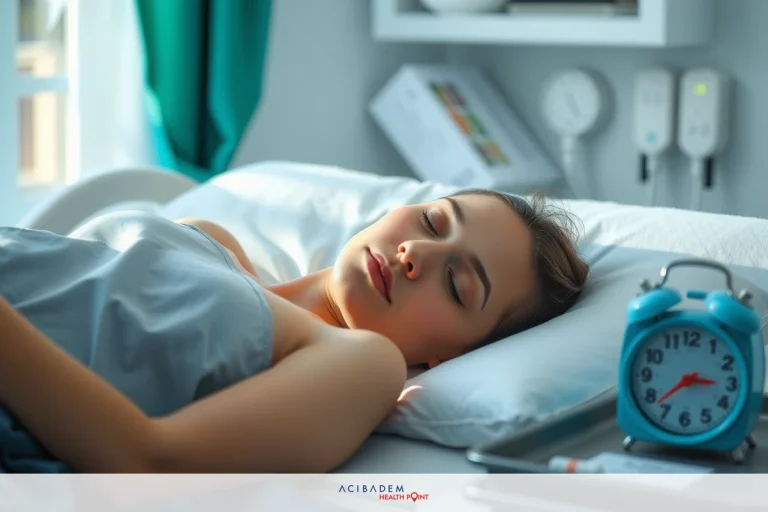How to Sleep Weeks After Rhinoplasty
How to Sleep Weeks After Rhinoplasty Sleeping comfortably during recovery from rhinoplasty can be challenging. The initial days post-surgery demand specific attention to your sleeping position to avoid undue pressure on the nose, potentially disrupting the healing process. Creating an environment conducive to rest is equally important and often overlooked.
Incorporating good sleep hygiene practices plays a vital role in fostering quality sleep and aiding recovery. A balanced routine of maintaining regular sleep hours, limiting daytime naps, and avoiding stimulants close to bedtime are some ways of ensuring sound rest. By focusing on these aspects, we create a favorable foundation for effective recuperation after rhinoplasty.
Choosing the Right Sleeping Position
Sleeping positions significantly impact post-operative recovery from rhinoplasty. Following this surgery, it’s essential to avoid any pressure on the nose that could disrupt its newly sculpted structure and impede healing. To mitigate such risks, one preferred position is sleeping with your head elevated higher than your chest.
This specific orientation aids in reducing swelling by discouraging fluid accumulation around the surgical area. A reclining chair can be a useful aid for maintaining this particular posture while asleep. Alternatively, you may also prop up pillows against the wall or use a foam wedge pillow to achieve an elevated sleeping stance in bed.
A side-sleeper might find adapting to these changes challenging initially; however, patience is key during this phase of recovery as ensuring optimal comfort should not compromise the healing process of your nose. Remember that each day brings you closer to complete recuperation and back to your regular sleep habits – persistence will pay off.
While choosing a suitable sleeping position after rhinoplasty is vital for successful recovery, remember that everyone’s body responds differently to surgery and subsequent healing methods. Therefore, do not hesitate to consult with your doctor about what would work best for you personally in terms of comfort and effective recovery.
Creating a Relaxing Sleep Environment
The environment you sleep in plays an influential role in your recovery post- rhinoplasty. A conducive sleep setting can soothe the senses, promote relaxation, and
significantly enhance the quality of rest necessary for healing. In this context, we provide some suggestions to help create a serene ambiance that fosters recuperative sleep.
- Darkness is Key: Dimming or turning off lights signals your brain that it’s time to rest. Consider using blackout curtains or eye masks for optimal darkness.
- Quiet Surroundings: Minimize noise disturbances as much as possible; earplugs might be beneficial if external noises are unavoidable.
- Regulate Room Temperature: A cool room aids better sleep than a warm one – adjust your thermostat accordingly.

A woman in a hospital bed, sleeping. There is medical equipment next to the bed. The clock reads 15:38. - Consider Humidity Levels: Dry air may cause discomfort during rhinoplasty recovery; thus, maintaining suitable humidity levels using humidifiers could prove helpful.
- Ease into Comfort with Soft Bedding: Opt for soft pillows and comfortable blankets that do not irritate your skin or nasal area.
By transforming your bedroom into an oasis of tranquility, you lay the groundwork for peaceful slumbers after undergoing rhinoplasty surgery—an essential step towards swift and successful recovery!
Practicing Good Sleep Hygiene
Sleep hygiene refers to the practices and habits that are necessary for having good night’s sleep and full daytime alertness. Following a rhinoplasty procedure, maintaining robust sleep hygiene is paramount to ensure your body gets sufficient rest and recovers effectively. This section imparts some essential tips on upholding healthy sleep habits in the weeks following your surgery.
An established routine can pave the way towards achieving consistent, quality sleep. Aim to wake up and go to bed at the same time every day – yes, even on weekends! By adhering to a fixed schedule, you help regulate your body’s internal clock (circadian rhythm), leading to more restful slumbers at night. However, it’s important not just when you sleep but also what you do before bedtime!
Pre-sleep routines matter as they prepare both your mind and body for a period of repose. Avoid exposure to bright screens from electronic devices like phones or laptops close to bedtime; their emitted blue light has been known disrupt melatonin production – hormone responsible for regulating our sleep- wake cycle.
While we’ve so far focused on nighttime routines, let us not forget that daytime actions too play an integral part in promoting good nocturnal rest! Limiting daytime naps (especially late afternoon ones) ensures that you’re sufficiently tired by nighttime hence promoting longer periods of uninterrupted slumber. Regular physical exercise aids deeper sleeps; however refrain from vigorous workouts close-to-bedtime as they might make falling asleep difficult due its stimulating effect.
Every individual responds differently after surgery; thus while these guidelines provide general advice on maintaining healthy sleeping patterns post-rhinoplasty operation, always consult with your doctor regarding any specific questions or concerns related personal recovery plans.
FAQ
How long does it take to recover fully from a rhinoplasty procedure?
The duration of recovery varies among individuals, but generally, most people start feeling better within 2 weeks after surgery. Complete healing and settling of the nose might take up to a year or even longer.
When can I sleep on my side again after rhinoplasty?
Doctors usually advise patients to sleep on their backs for at least six weeks following the surgery to avoid any accidental pressure on the nose that could affect its healing and final result.
Can poor sleep delay my recovery process post-rhinoplasty?
Yes, inadequate or disturbed sleep can potentially slow down your healing process as quality rest is vital in aiding body's recuperation.
What should I do if I'm finding it difficult to fall asleep during my recovery period?
If you're having trouble sleeping post-operation, consider consulting with your doctor. They might be able provide guidance or possibly recommend safe relaxation techniques or medications.











